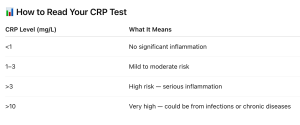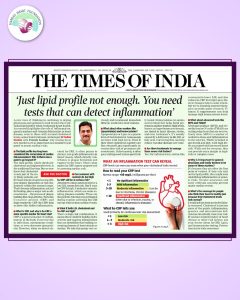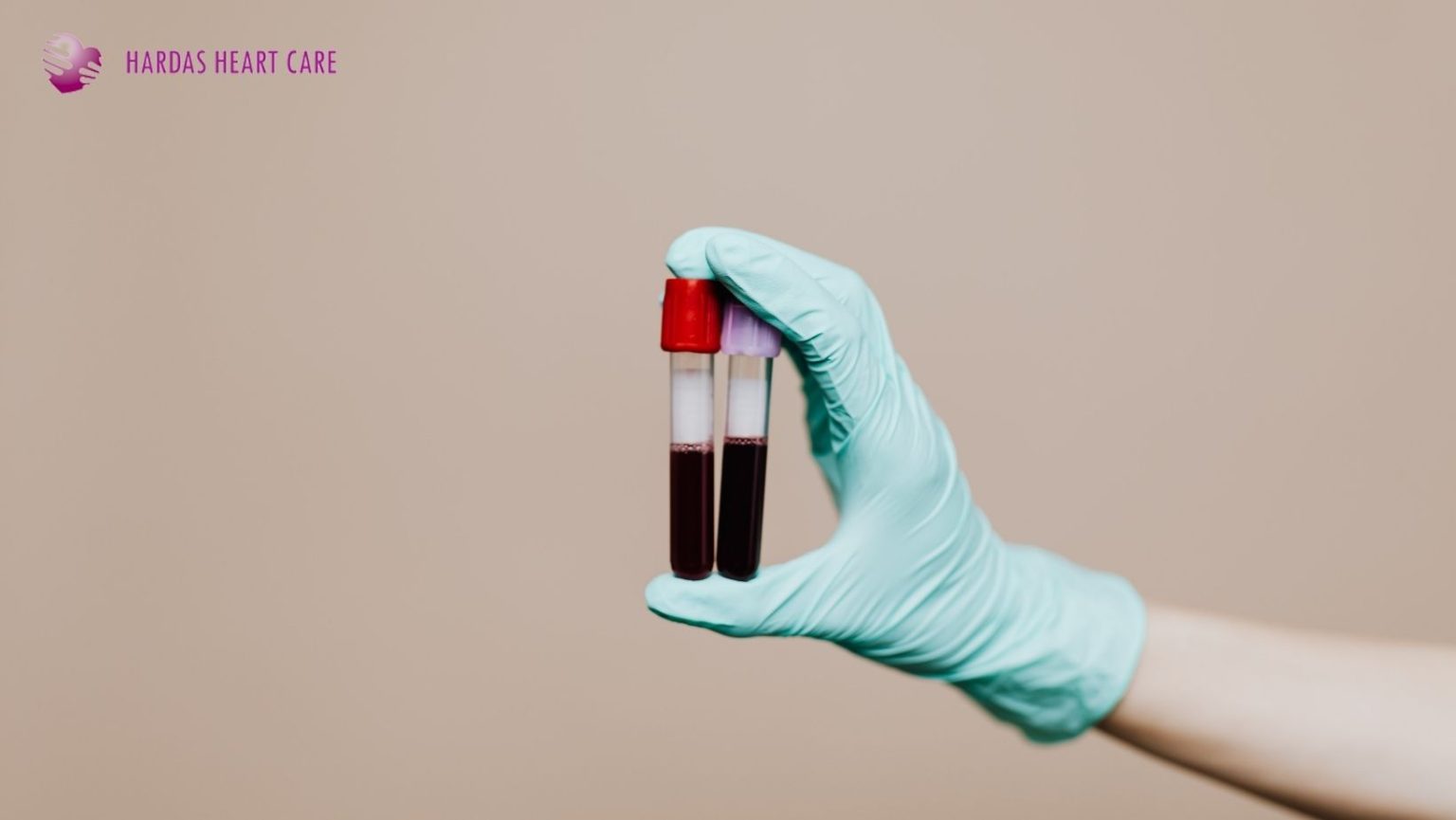Most people think a normal cholesterol report means a healthy heart — but that’s not always true. As Dr. Sharad Hardas explains in his interview with The Times of India, relying only on a lipid profile is no longer enough. New research shows that inflammation plays a major role in heart disease, even in people who have normal cholesterol levels. That’s why inflammation tests like CRP (C-reactive protein) are becoming essential for heart risk assessment.
Why Inflammation Matters
Inflammation in the blood vessels can lead to the rupture of plaques (fat deposits), triggering heart attacks. This can happen even if your cholesterol or LDL is within the normal range. The high-sensitivity CRP test (hs-CRP) is one of the most powerful tools to detect this hidden inflammation.
What Is CRP?
CRP is a marker of inflammation. When it’s high, it may point to:
- Chronic infections
- Autoimmune diseases
- Inflammatory reactions in arteries
A high CRP can make fatty plaques unstable and increase the risk of a sudden heart event like a heart attack or stroke.
What If LDL & CRP Are Both High?
That’s a dangerous combination. You have plaque and inflammation — the two key ingredients of a potential cardiac event. This group needs immediate lifestyle and medical interventions.
Can You Have Heart Risk With Normal LDL?
Yes. That’s why inflammation tests are so important. Some patients with low cholesterol still suffer heart attacks. Their problem is inflammation, not fat levels. Testing just lipid profile misses this risk.
What Other Markers Help?
Besides CRP, newer markers include:
Lipoprotein(a) — a genetic risk factor
Homocysteine — linked to heart disease, stroke, and Alzheimer’s
MPO and TMAO — advanced markers that reveal oxidative stress and gut-based inflammation
These tests give a fuller picture of your heart health.

Can Inflammation Be Treated?
Yes. Treatment includes:
- Statins (not just for lowering cholesterol, but also inflammation)
- Lifestyle changes – exercise, stress control, diet
- Vitamin B supplements – helpful in high homocysteine levels
Dr. Hardas’ Advice “If you have a family history of heart disease or unexplained fatigue, ask your doctor about hs-CRP, Lp(a), and homocysteine testing. Prevention begins with awareness.”
Final Thoughts
A normal cholesterol test is not a green signal for heart health. Dig deeper. Ask your doctor about inflammation testing. At Hardas Heart Care, we help you uncover hidden heart risks before they turn dangerous.
Take charge of your heart health — it’s more than just numbers on a report.




